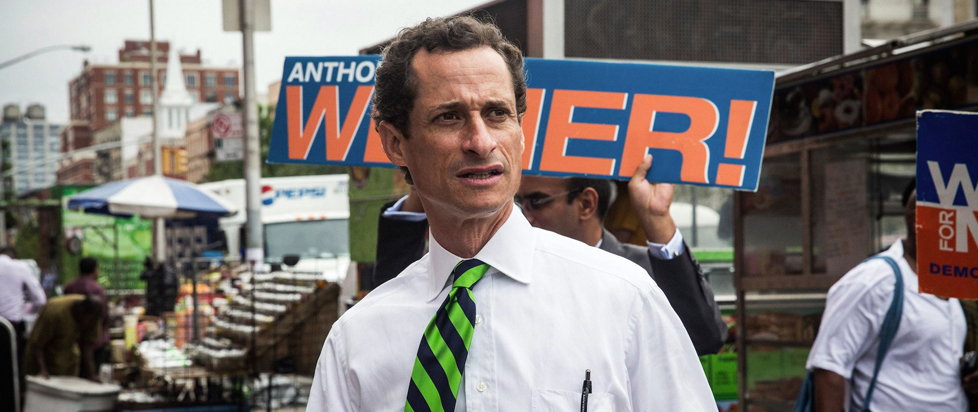
And the Prize for Truth Goes to…
 Every month in HUD, Andrea Ayres tackles our perception of politics and social issue through a lens tinted by gaming. This column is a reprint from Unwinnable Monthly #86, the Family issue. If you like what you see, grab the magazine for less than ten dollars, or subscribe and get all future magazines for half price.
Every month in HUD, Andrea Ayres tackles our perception of politics and social issue through a lens tinted by gaming. This column is a reprint from Unwinnable Monthly #86, the Family issue. If you like what you see, grab the magazine for less than ten dollars, or subscribe and get all future magazines for half price.
———
The truth and internet. The sexy words on everyone’s dry, chapped post-election lips. Many have suggested that all is not lost, the truth can be saved from going over the cliff it so precipitously dangles over. Those in the media have spent the last five weeks, to varying extents, blaming one another, but we only have ourselves to blame.
Truth, trust, civic engagement, media and government institutions, none of these issues exist in a vacuum. You’ll find it difficult to believe a source you don’t trust. Likewise, you are far less likely to vote for or support an institution you don’t believe in; conversely, those who do vote are more likely to be trusting. There have been a lot of calls to fix the problem and fix it now, but it’s somewhat murky as to what exactly that problem is and what measures should be taken to remedy it.
Perhaps my favorite suggestion for how to save the truth has been through the establishment of a ‘Truth Prize.’ What a depressing, albeit predictable, tech-industry inspired response. A prize for truth would suggest that the truth (or as close to whatever the truth means as any media organization can ostensibly arrive at) is so rare that it deserves an award. Establishing a prize for truth for engaging in what once was thought of as a basic precept of journalism is remarkably dismal.
The bewilderment over how fake news, misinformation and conspiracy theories came to dominate the American media landscape is somewhat surprising. None of this is particularly new. The media landscape, and no, the rise of Trump, can’t be explained by Gamergate. While the tactics of Trump supporters may have much in common with the tactics employed by professed Gamergate supporters, the cleavages this election surfaced are considerably older. The relationship between the news media and participatory culture has always been fraught with tension.
[…] a bunch of bigots who were shouting from one side of the room to the other and back again without even bothering to listen to what the other side of the room were saying. If someone did try to put a reasonable, balanced view it was an exception.
– Martin King, Independent.co.uk Editor
What year was this quote from, 2016 or 2009? It’s from a telephone interview conducted by researcher Neil Thurman in 2004. The emerging citizen journalist was always a sort of consternation for media professionals. Carving out specialized avenues and roles for the citizen journalist became a way to satiate the blogger, the micro-blogger, the individual eager to engage with participatory culture. Like the videogame industry, media companies who ignored the proliferation of user generated content generally did so at their own peril. Those who embraced it saw the benefits returned to them in the form of more eyes on the page and ad dollars. CNN’s iReport emerged as one of the more successful forms of participatory journalism around 2006, with CNN calling such reports, “their eyes and ears on the ground.”
Fox News, obviously well-known for its motto of ‘we report, you decide,’ operates from the point that the you are the ultimate arbiter of what is and isn’t news, what is and is not factual, and that you, ultimately know best. Of course, that wasn’t the real reason for the creation of that particular Fox News slogan. It had more to do with marketing than it did Fox’s, or its creator Roger Ailes, belief in the news consumers ability to parse news coverage. Journalism has almost always made decisions about what it chooses to cover (or not) based on market forces.
Known as the party press era (c 1790-1830) early American newspapers were little more than thinly disguised arms of the First Party System. During the 1820s and 1830s, the penny press, along with advancements in transportation, enabled wider distribution of news to an American public who was increasingly literate and educated at a price they could afford – a penny.
In 1800 there were 200 newspapers, by 1860 there were over 3000. Where early newspapers relied on funding from the political parties they advocated for, the Penny Press shifted to the circulation and advertisement model many of us are more familiar with. To capture the attention of an audience who was newly awash in choice, Penny Press papers took a different approach: cover the news readers wanted to read. What people wanted to read, it turns out, was their fair share of tabloid sensationalism and a good mixture of lurid crime details. Intermingled in the tabloid style were local and community pieces. Thanks to the advertising model of the Penny Press, newspapers could afford to hire numerous reporters and provide its readers with coverage of a wide variety of events. That advertising model has, as is well known, been disappearing for the past two-plus decades.
In 2009, the Columbia Journalism Review published an extensive piece, “The Reconstruction of American Journalism.” The authors, Leonard Downie, Jr. and Michael Schudson cautioned against the erosion of local accountability journalism as news outlets cut reporters who covered local elections, education, social welfare and other community issues. The erosion of reporters at the state and local level has only increased since 2009, as coverage of state politics takes a back seat to reporting on sports and weather.

Americans waning relationship with their local newspaper and reporter is problematic. We are lacking vital information about the community matters and local policies which have an incredible impact on our lives. Research has shown that the more engaged you are with local news the more engaged you tend to be as a citizen. Even when citizens are interviewed for local stories, the individuals interviewed tend to be white, with white men being the most likely to have spoken with a local journalist. This gives whites disproportionate representation in matters affecting communities, even as nonwhites engage with and watch local news more. Local journalism can help foster feelings of community and connect to the policies that affect where and how the more people engage with local news and journalism, the more likely they are to be civically engaged and invested in their communities.
Just as the Penny Press brought news to a broader set of Americans and helped demonstrate the value of journalism, the disappearance of local newspapers and reporters makes it more difficult for us to appreciate the vital role journalism plays in informing the public at both the local and national level. Can we identify good journalism? Do Americans share a communal understanding of what good journalism is, or rather what it isn’t? Journalists and academics of journalism can’t be the only ones asking and seeking answers to these questions. If we, as the public expect journalists to derive their authority from the community it is expected to inform – if we do indeed view journalism as an extension of the public good – then this must put some pressure, some onus on us to participate in these debates. There’s little incentive to debate a public good you don’t trust or believe in. Trust in the media has been eroding for decades and certainly scandals involving news coverage haven’t helped. The issue of trust is much larger and much more central to our current media and political climate. And each of these issues fall back on one another to create a culture that is critically disengaged.
In Me I Trust
The most basic definition of trust is a firm belief in the reliability, truth, ability or strength of someone or something. One of the more disarming set of statistics to come out of this election cycle was not only that Americans distrust the media or the government, it’s that we don’t trust one another. It’s difficult to have a functioning community, government or democracy without trust.
Citing a single survey about trust isn’t enough to get us to a good baseline establishment of how little Americans trust one another, so let’s look at another. The General Social Survey is a project by the National Data Program for the Social Science at the University of Chicago. It’s collected data on shifting American attitudes, one including how much trust we have in one another, since 1972. In 2013, the GSS reported that only one-third of Americans trusted one another. When the survey began in 1972 half of Americans reported trusting one another. There’s no single event we can turn to or identify as being the main catalyst for our lack of trust. Identifying the factors contribute to trust is a favorite topic of social scientists as it’s fraught with debate and damn near impossible to pin down as causal relationships are not always clear or easily identified. Still, it’s worth investigating all the same.
 Americans don’t feel connected to one another. Many feel as if they are living separate and distinct lives from their neighbors, nevermind those who live in another state or on the opposite side of the country. Informal social networks are an important component of social trust and one that we’re increasingly lacking. If trust is faith in something or someone, than social trust is the belief in the honesty and integrity of others.
Americans don’t feel connected to one another. Many feel as if they are living separate and distinct lives from their neighbors, nevermind those who live in another state or on the opposite side of the country. Informal social networks are an important component of social trust and one that we’re increasingly lacking. If trust is faith in something or someone, than social trust is the belief in the honesty and integrity of others.
Researchers Jan Delhey and Kenneth Newton looked at social trust in the Journal of European Societies. Their research, published in 2003, looked at several factors commonly associated with social trust in seven European societies. They found that informal social networks, public safety and an individual’s success in life – of which access to education plays an important role – contribute to the formation of social trust.
A similar sentiment is echoed in the work of Eric Uslaner and Mitchell Brown on inequality, trust, and civic engagement. Their research indicated that “Inequality is the strongest determinant of generalized trust over time in the United States and across the American states.” Inequality matters. As identified by Pew Research, residential segregation by income has been on the rise for the past three decades as economic inequality has increased. Americans who live in more affluent neighborhoods are more likely to trust their neighbors. Why is any of this important to our discussion of truth and civic engagement?
When politicians invoke the American Dream they do so not only as a tool to conjure up feelings of patriotism but because the evocation of that dream has traditionally meant something similar to all citizens. It’s the belief, the trust, that if you work hard enough, you can make it. You can have a family, a home and, maybe, a little economic security. It was a common understanding – at the very least a dream we bought-into – that a shared fate was possible.
That shared fate isn’t possible and buying into that dream to make others feel better, to make ourselves feel better does little to improve our current political environment. Widespread economic inequality is real, unequal access to education exists, and eroding trust in our institutions undermine our faith and willingness to participate in our government. Yes, the media is eager to give us access to and peddle information we want to see, but the media doesn’t act in isolation, it responds to us, its readers.
The link to general awareness is crucial, since government as an institution cannot survive without the cooperation in some part of the population, and governments by themselves might be quite happy to survive on feeding their populations a diet of illusion.
– Rethinking Journalism Again,
edited by Chris Peters and Marcel Broersma
If our democracy relies on this general awareness of what is happening in our neighborhoods, state and country, then we the public have cause for concern. As this base level of awareness is no longer guaranteed. No single issue I’ve touched on, however briefly, exists in isolation. Trust, engagement, journalism, education, inequality: each of these issues, with all their complexity, feed off one another. There is no quick fix, no truth prize we can turn to solve our messy problems. It requires much more of us. A reinvestment in our community and one another.
If democracy is to remain a substantive, not fictive, term, then it must involve some sharing of experience – of information, argumentation, clarification, empathy, and celebration – across a range of social locations. Otherwise, members of a democracy will barely recognize one another as part of the same space.
– N. Couldry & J. Turow
Big Data and the Clearance of the Public Realm




